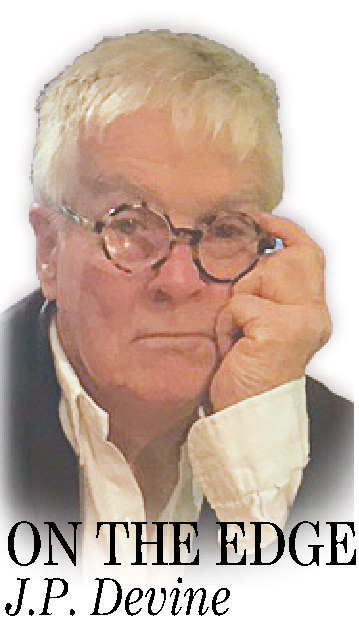It’s Memorial Day, and like other Americans around the world, perhaps you’ll celebrate it with barbecues, picnics and perhaps a visit to church.
If you’re a veteran, not one like myself who simply did his duty, joined up and shuffled around the edge of the Korean conflict suffering the horrors of paper cuts, but a seasoned combat vet, you’ll make room in your day to remember those who fell in front of you, beside you, behind you.
Yes, they left you here still alive to tell their stories. That’s why you survived.
I am the survivor of survivors, of men who fought and lived to come home with aching hearts of darkness.
One or two of them, softened by drink, whispered their stories in my young ear. Some cried; some did not.
My memories consist of stories I grew up with, the stories from a father who had served in combat in the Philippines, in the Spanish-American War, and as a naval officer in the Great War in the North Atlantic.
I learned from him that my beloved Uncle Pete Morton, a jovial, beer-drinking habitual fisherman who owned a little foundry before the Great War, had been temporarily blinded and suffered damage to his lungs from a gas attack in the trenches of France.
Pete lost his foundry during the next war, and with his health diminishing, he spent the rest of his old age taking me and my brothers fishing every summer.
There were my four brothers and six cousins, one lost at sea, who went only weeks before Christmas of 1941 to the Pacific and to fight those battles. I remember their stories.
Like the story of George Wunder, a big, curly-headed blond boy from Iowa.
He was my brother Bud’s best friend, who came home with him on leave and sat at our table at Thanksgiving, danced with my sisters and read my comic books before they both went back to sea to fight, among others, in the infamous battle of the Coral Sea.
In a kamikaze attack during that battle, George was blown overboard by an explosion. Bud was running up the ladder from below decks just as it happened and saw him, bloodied but conscious, floating in the water. Bud, an excellent swimmer, instantly dove overboard to rescue him. He was less than 10 feet away from him when a large piece of metal rained down and took George under.
I heard this story not from him in the two long years I spent with him, but from another shipmate, a chief petty officer who was standing on deck waiting to throw them both a rope. He said that afterward, Bud went under several times looking for George, while debris landed around him. Bud never found him; he never found himself. After years of drinking and smoking, he died of mouth cancer at 77. He died drunk and alone.
His story and the story of my two hard years with him in the woods of the Northwest is for a book.
There was one story from a former Marine I met in a bar in San Francisco who was a survivor of the battle of the Chosin Reservoir in the Korean winter of 1950, who told of stacking their dead, four and six at a time, on the hoods of their Jeeps before escaping.
There was Billy, a friend from basic training. Billy was just leaving Tachikawa Air Base when I arrived in Japan. He told me of his best friend at a forward base in Korea near the end of the fighting, whose job each day was to pick up a box of the dog tags of the dead — some with brown, dried blood still on them — and type the names, one after another, onto an official document. That was his job. After a while, Billy said, his friend’s hands shook so badly he had to be hospitalized.
There are hundreds of thousands of stories like these that came out of those wars, and I imagine the wars of the Middle East will produce more.
May 29, 2017: The man called Trump, who today walks the halls of greater men than he, will be in the Middle East this year.
There is a chance that he will be reminded by his family to make a statement honoring this day. He will stand at a lectern somewhere in the warm sun, draw a piece of paper from his left-hand pocket and read words written by others.
America’s veterans are listening, Donald. If you can’t say something nice, don’t say anything at all.
J.P. Devine is a Waterville writer.
Send questions/comments to the editors.




Success. Please wait for the page to reload. If the page does not reload within 5 seconds, please refresh the page.
Enter your email and password to access comments.
Hi, to comment on stories you must . This profile is in addition to your subscription and website login.
Already have a commenting profile? .
Invalid username/password.
Please check your email to confirm and complete your registration.
Only subscribers are eligible to post comments. Please subscribe or login first for digital access. Here’s why.
Use the form below to reset your password. When you've submitted your account email, we will send an email with a reset code.